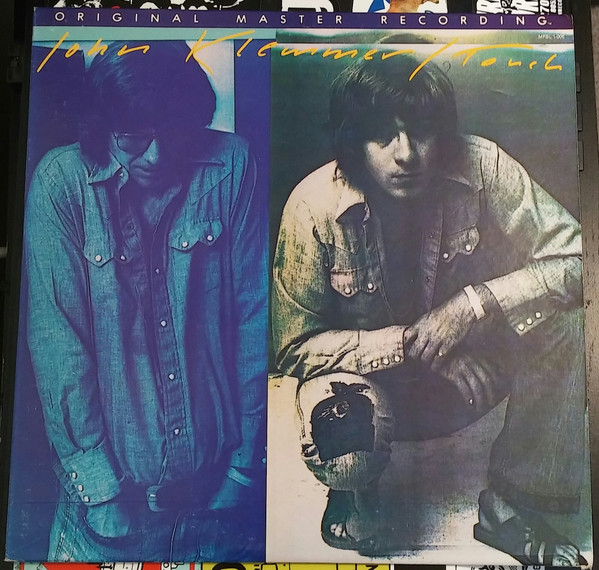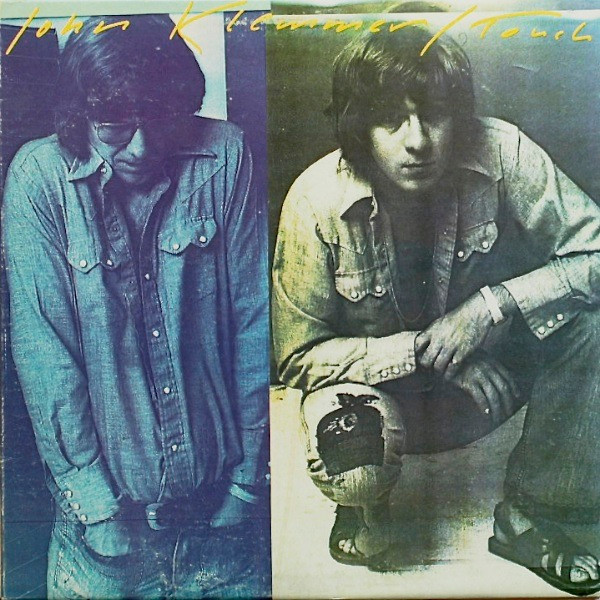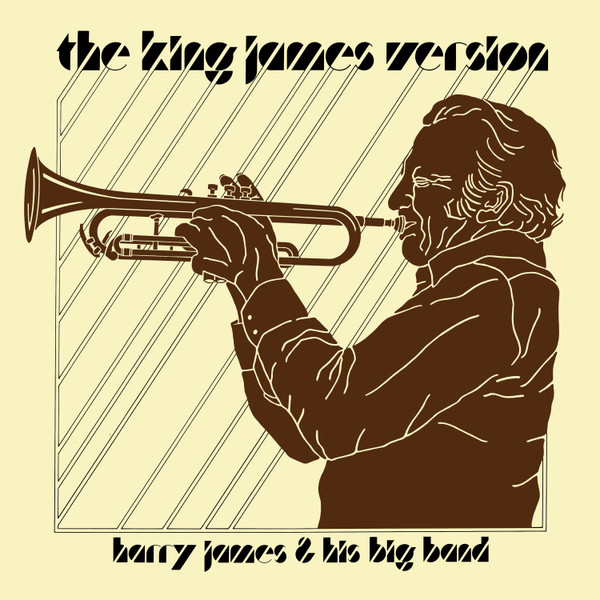-
WANTED: Happy members who like to discuss audio and other topics related to our interest. Desire to learn and share knowledge of science required. There are many reviews of audio hardware and expert members to help answer your questions. Click here to have your audio equipment measured for free!
You are using an out of date browser. It may not display this or other websites correctly.
You should upgrade or use an alternative browser.
You should upgrade or use an alternative browser.
Mobile Fidelity Analog Vinyl Controversy
- Thread starter Azazello13
- Start date
So quick summary is that labels like Sony don't want to lend out their tapes. So Mobile Fidelity sends a guy with tape decks to capture the master into DSD. They then bring the DSD back and create the LP master from that. It makes sense why they do it. What doesn't is not telling their customers this.
Their website says they use a proprietary transfer method, from the original tapes - "First and foremost, we only utilize first generation original master recordings as source material for our releases." - which is true.
They don't say they cut vinyl directly from the master tapes, and never have. I think some of their customers have assumed that.
They also talk about their "One Step" vinyl process - but that explicitly refers to their lacquer and vinyl pressing process, not their mastering process.
They can and should be more detailed about what that "proprietary transfer method" is, but virtually all of this is people misreading what they actually say about their own process.
The most I can fault MoFi for is not describing their own process in more detail - but they aren't making false claims, or even misleading ones.
spartaman64
Active Member
- Joined
- Apr 2, 2021
- Messages
- 137
- Likes
- 140
in some interviews they did and apparently in emails to people asking about it.Their website says they use a proprietary transfer method, from the original tapes - "First and foremost, we only utilize first generation original master recordings as source material for our releases." - which is true.
They don't say they cut vinyl directly from analog, and never have. I think some of their customers have assumed that.
They also talk about their "One Step" vinyl process - but that explicitly refers to their lacquer and vinyl pressing process, not their mastering process.
They can and should be more detailed about what that "proprietary transfer method" is, but virtually all of this is people misreading what they actually say about their own process.
The most I can fault MoFi for is not describing their own process in more detail - but they aren't making false claims, or even misleading ones.
in some interviews they did and apparently in emails to people asking about it.
Fair enough - that would cross the line and they should correct that, as it doesn't track with what their own website says.
MakeMineVinyl
Major Contributor
A digital step done right introduces no added artifacts and is basically transparent. So whether an LP has gone through a digital step is a moot point for me. The 'magic' of vinyl playback occurs in the process of dragging a rock through plastic, not in what happened upstream.
In fact, there are LPs I've purchased which were authentically cut from the original reel to reel analog tapes which have displayed sonic problems due to tape damage or whatever which could have been easily fixed in ProTools. It's those times I wish they had gone through a digital step to cure problems which couldn't be addressed in the pure analog domain.
I don't believe an original analog master tape is a holy artifact which cannot be reinterpreted so as to improve it.
In fact, there are LPs I've purchased which were authentically cut from the original reel to reel analog tapes which have displayed sonic problems due to tape damage or whatever which could have been easily fixed in ProTools. It's those times I wish they had gone through a digital step to cure problems which couldn't be addressed in the pure analog domain.
I don't believe an original analog master tape is a holy artifact which cannot be reinterpreted so as to improve it.
A digital step done right introduces no added artifacts and is basically transparent. So whether an LP has gone through a digital step is a moot point for me. The 'magic' of vinyl playback occurs in the process of dragging a rock through plastic, not in what happened upstream.
I agree wholeheartedly. I love my vinyl, even for vintage non-technical recordings like my 1964 copy of Great Moments with Mr. Lincoln from Disneyland. I think the real benefit, which parallels high-resolution audio is that the mixes are different. The attention to making sure the recording nicely tracks with most cartridges and not just a Shure V15 TypeV-Mr, translates into a better sounding mix.
I also think, which is consistent with ASR but also an opposing view, is that there is the role of pleasant forced EQ/distortions. Sighted bias can work in your favor and I imagine if if you have read the liner notes before or while listening to the music, it can enhance the experience. We see that with headphones and crosstalk algorithms, or even the difference in headphone preference curves and the degree of subjective bass.
Last, in a world of unlimited music streaming, buying a physical record is also a way to signify an appreciation for a specific artist/composer/performer.
- Joined
- Jan 27, 2019
- Messages
- 7,286
- Likes
- 12,191
Yeah, I remember seeing it as such at the time!
I remember getting Stevie Wonder's Secret Life Of Plants, which I believe was a digital recording. And also noticing it seemed to sound slightly different from "regular" LPs. My early impression was super clean, clear, slightly thin and cold relative to what I was used to. Not saying that's accurate, just recounting my old initial impression. It's one of my favorite albums!
The Denon Digital LP’s are great for the reasons mentioned here that they took pride in the mix.
You can argue that vinyl is worse than CDs, but audiophiles lost the loudness wars and you basically have great mixes on flawed formats or poor mixes on very good formats.
You can argue that vinyl is worse than CDs, but audiophiles lost the loudness wars and you basically have great mixes on flawed formats or poor mixes on very good formats.
AFAIK cutting machines used a digital delay to be able to minimize the distance between adjacent grooves (I know it's only one groove but I think you know what I mean). I don't know when this digital delay became available though. Hence even "full analog" audio vinyl went through at least on AD/DA process ...
MakeMineVinyl
Major Contributor
I quite frequently have found jazz albums on streaming and liked them so much that I ordered the vinyl remaster, just to have the experience (quite different from streaming or playing a file) of placing the album on the turntable and sitting back with the album cover to read the liner notes while enjoying the music. Sometimes the overall sound of the album isn't very different at all between the streaming version and the vinyl, but the overall experience is vastly different.I agree wholeheartedly. I love my vinyl, even for vintage non-technical recordings like my 1964 copy of Great Moments with Mr. Lincoln from Disneyland. I think the real benefit, which parallels high-resolution audio is that the mixes are different. The attention to making sure the recording nicely tracks with most cartridges and not just a Shure V15 TypeV-Mr, translates into a better sounding mix.
I also think, which is consistent with ASR but also an opposing view, is that there is the role of pleasant forced EQ/distortions. Sighted bias can work in your favor and I imagine if if you have read the liner notes before or while listening to the music, it can enhance the experience. We see that with headphones and crosstalk algorithms, or even the difference in headphone preference curves and the degree of subjective bass.
Last, in a world of unlimited music streaming, buying a physical record is also a way to signify an appreciation for a specific artist/composer/performer.
MakeMineVinyl
Major Contributor
That's variable pitch cutting and the preview tells the cutting computer to expect louder modulations which need wider groove spacing. In a worst case scenario the digital delayed version is the signal which is cut onto the record, with the nice analog original sound being used only for the disc cutting computer. A better solution was the use of a physical 'preview head' on the tape playback machine which read the analog tape some time before it hit the actual playback head. One of the advantages of cutting from a digital source is that there is no degredation in sound quality in the delayed source, so everything is nice and controllable.AFAIK cutting machines used a digital delay to be able to minimize the distance between adjacent grooves (I know it's only one groove but I think you know what I mean). I don't know when this digital delay became available though. Hence even "full analog" audio vinyl went through at least on AD/DA process ...
The Denon Digital LP’s are great for the reasons mentioned here that they took pride in the mix.
You can argue that vinyl is worse than CDs, but audiophiles lost the loudness wars and you basically have great mixes on flawed formats or poor mixes on very good formats.
Well, you've also got poor mixes on flawed formats, and good mixes on very good formats, which makes blanket statements impossible.
Well, you've also got poor mixes on flawed formats, and good mixes on very good formats, which makes blanket statements impossible.
Agree. It wasn’t intended as a blanket statement but you can imagine that if you had consistent mixes, it would be a non issue.
But if you look at something like
It’s less common to see a bad vinyl and good CD for the same song when it comes to dynamic range for content after 2000 or so? They can be both bad or both good.
What’s silly is that we KNOW that vinyl’s dynamic range is really poor compared to 16-bit PCM. It’s that a large number of modern CDs are very compressed and processed.
How do they do their mastering from DSD? Analog? Or in audio workstation in PCM?
Waxx
Major Contributor
I thought they claim analog, but i would not be surprised that some pcm conversion is still used. It does not matter at the end as long as it's done right and good convertors are used. And that used to be a problem (or very expensive), but this site proved more than once that it isn't anymore.How do they do their mastering from DSD? Analog? Or in audio workstation in PCM?
Anthony101
Active Member
Who cares if the source comes from the original master tapes, a copy of the master tapes or a DSD file copied from a master tape as long as it is a good-sounding record. A label nowadays will not let a first-generation master leave their custody, and the fact that MOFI records sound fantastic is all that matters if the price is right. In this case, the price was not reasonable, and one can understand why loyal MOFI customers feel deceived. If a record is cut straight from analogue, okay, charge £125 for that particular record. However, if a DSD file is copied from the master tapes to produce the lacquer, at least set a reasonable price and inform your customers.

Who cares if the source comes from the original master tapes, a copy of the master tapes or a DSD file copied from a master tape as long as it is a good-sounding record. A label nowadays will not let a first-generation master leave their custody, and the fact that MOFI records sound fantastic is all that matters if the price is right. In this case, the price was not reasonable, and one can understand why loyal MOFI customers feel deceived. If a record is cut straight from analogue, okay, charge £125 for that particular record. However, if a DSD file is copied from the master tapes to produce the lacquer, at least set a reasonable price and inform your customers.
View attachment 219766
I guess it's an Original Recording (of the) Master, so technically their branding isn't wrong
I guess my old MFSL Original Master Recording LP's have to be all analog. Such as this John Klemmer Touch. I also have the regular version of the LP.

 www.discogs.com
www.discogs.com

 www.discogs.com
www.discogs.com
My Sheffield Labs Harry James and his Big Band -King James Version Direct-to-Disc LP is all analog, I think! It sounds incredible to me.
It sounds incredible to me.

 www.discogs.com
www.discogs.com

John Klemmer - Touch
View credits, reviews, tracks and shop for the 1980 Vinyl release of "Touch" on Discogs.
 www.discogs.com
www.discogs.com

John Klemmer - Touch
View credits, reviews, tracks and shop for the 1975 Vinyl release of "Touch" on Discogs.
 www.discogs.com
www.discogs.com
My Sheffield Labs Harry James and his Big Band -King James Version Direct-to-Disc LP is all analog, I think!

Harry James & His Big Band - The King James Version
Explore songs, recommendations, and other album details for The King James Version by Harry James & His Big Band. Compare different versions and buy them all on Discogs.
 www.discogs.com
www.discogs.com
